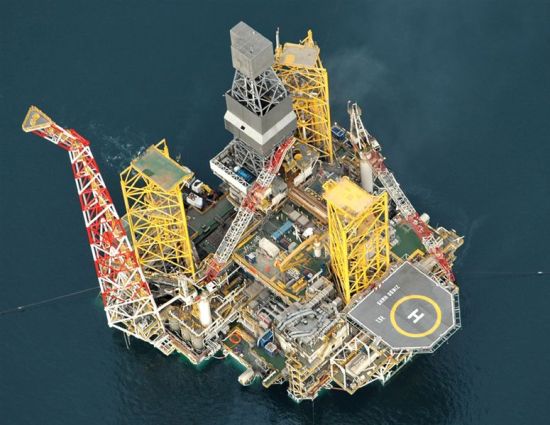
Nabucco Project Can Advance Faster Than Rivals
Publication: Eurasia Daily Monitor Volume: 8 Issue: 161
By:

Nabucco, the strategic project for transportation of Caspian gas to Europe, seems threatened by the non-strategic pipeline projects, ITGI (Interconnector Turkey-Greece-Italy) and TAP (Trans-Adriatic Pipeline). These are less advanced, compared with Nabucco, but are also less ambitious in scope, and consequently easier to source with gas. At stake is the 10 billion cubic meters (bcm) annual gas volume, planned for export to Europe from Azerbaijan’s Shah Deniz field Phase Two, from 2017 onward. The winning pipeline project will kill the other two rivals in this zero-sum contest over finite gas volumes.
Azerbaijan may be able to supplement that volume with a few additional bcm per year within the same time frame. In any case, Baku holds the strongest cards for choosing the winner among the three rival gas pipelines to Europe (“Three Pipeline Consortiums Compete Over Access To Azerbaijani Gas,” EDM, August 18).
Each of the three pipeline projects (Nabucco, ITGI, and TAP) lay individual claim to “opening the Southern Corridor” for gas to Europe. At this time, however, formal allegiance to the corridor concept disguises an intense competition that will leave only one project standing. The corridor can only become reality when Turkmen gas volumes will aggregate with Azerbaijani gas volumes for strategic impact in continental Europe.
In that vein, Nabucco management is also bound to claim that this project “will certainly lead the way in developing the Southern Corridor.” The start of construction work has been delayed to 2013, with the first stage planned for completion in 2017, synchronized with the planned start of commercial production at Shah Deniz in Azerbaijan. The ITGI and TAP projects have also synchronized their construction schedules to 2017, underscoring the competitive race. In practice, however, the Nabucco project runs ahead of its competitors in all key respects at this time.
The Nabucco intergovernmental agreements (IGAs, 2010) and project support agreements (PSAs, June 2011) have been signed by the governments and project companies of Nabucco’s five transit countries. These agreements establish an advantageous, long-term regulatory and transit regime, and protect the planned Nabucco pipeline from any potential disadvantageous changes to that regime. The consortium will own the pipeline, as distinct from using another party’s pipeline and having to negotiate the terms. Pipeline ownership immunizes against possible abuse of the transit monopoly by strong states outside the EU. The Turkish government has proved to be a particularly tough negotiator, prone to using the transit monopoly for leverage on other issues. While the Nabucco consortium’s interests will be protected by pipeline ownership on Turkish territory, the ITGI and TAP projects cannot claim similar protection. They plan to use (and upgrade) Turkey’s pipelines, all subject to negotiation with the Turks.
Nabucco is outrunning its rivals on project engineering work. It has advanced from the front engineering phase to that of detailed engineering, with the consultancy Penspen subcontracting the detailed work to companies in each of the five Nabucco countries. This work phase is due for completion in the second quarter of 2012 (Trend, August 10; 1news.az, August 9, 12).
Of the three rival projects, only Nabucco has received signals of potentially massive support from lending institutions. The European Investment Bank, European Bank for Reconstruction and Development, and International Finance Corporation co-signed in 2010 a mandate letter envisaging up to 4 billion Euros ($5.72 billion) in credits for Nabucco. The ITGI and TAP are not known to have received any comparable signal in terms of financing. Meanwhile, all three projects have yet to work out clear and credible budgets. The figures submitted thus far are tentative and subject to changes, partly due to add-on elements to the projects, and to changing macroeconomic circumstances overtaking earlier budget projections.
The European Commission is working with Azerbaijan and Turkmenistan to launch Nabucco as soon as possible. The EU and the commission cannot officially take sides, for or against projects developed by European companies. However, the commission’s strategic priorities and its policy focus on connecting Turkmenistan with Azerbaijan by a trans-Caspian pipeline, creating a commercial mechanism for procuring Turkmen gas, and sourcing the Nabucco pipeline project from both of these Caspian countries.
According to Azerbaijan’s Industry and Energy Minister, Natig Aliyev, sourcing Nabucco at its planned volume of 31 bcm per year in the second stage is doable: “Based on the volume of confirmed gas reserves, there must not be problems with filling the pipeline.” He seems to share the European Commission’s view that Nabucco can start at 10 bcm per year and increase that volume gradually (“scalable” implementation) through a trans-Caspian pipeline from Turkmenistan to Azerbaijan (www.news.az, August 2).
The European Commission plans to hold a high-level meeting with Azerbaijan and Turkmenistan in September for discussing gas procurement and trans-Caspian transportation. Last year and earlier this year, Turkmenistan announced plans to deliver up to 30 bcm of gas annually, starting incrementally from 2015, by overland pipeline to the Caspian coast, for onward transportation by trans-Caspian pipeline to Azerbaijan. In addition, there is a standing Turkmen offer of 10 bcm per year from the existing offshore production. Turkmenistan, however, expects a long-term guaranteed demand for its gas from Europe.




